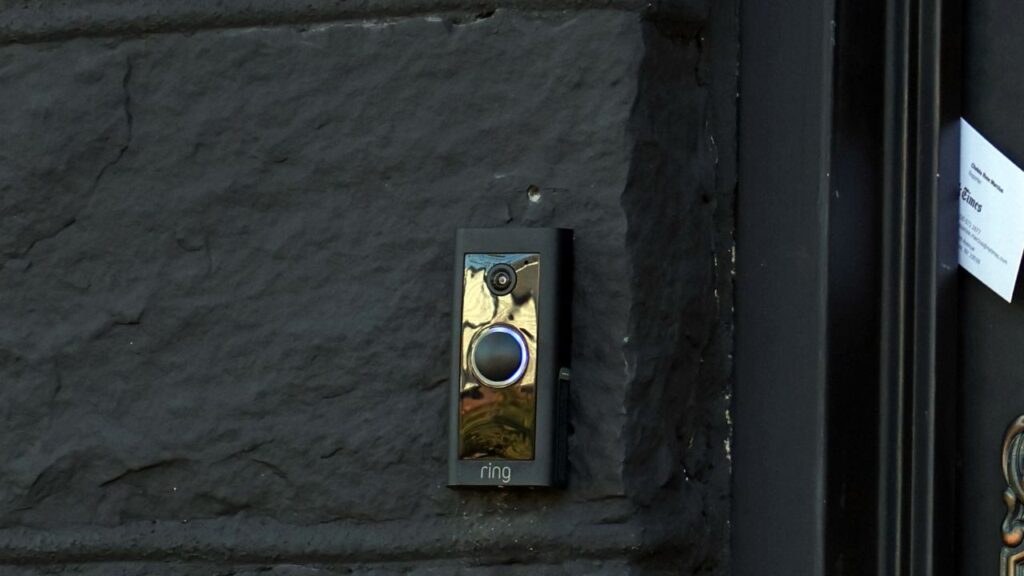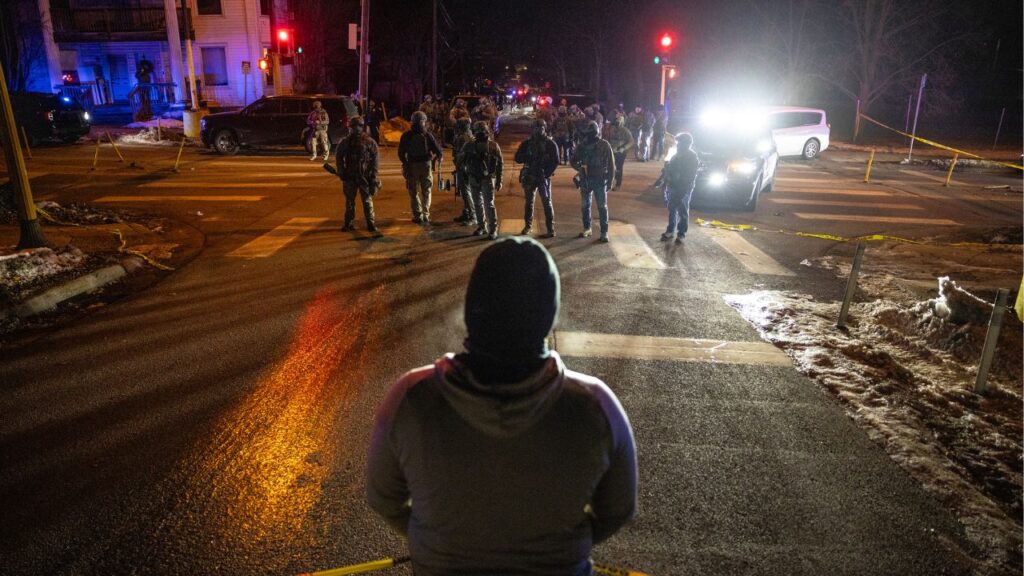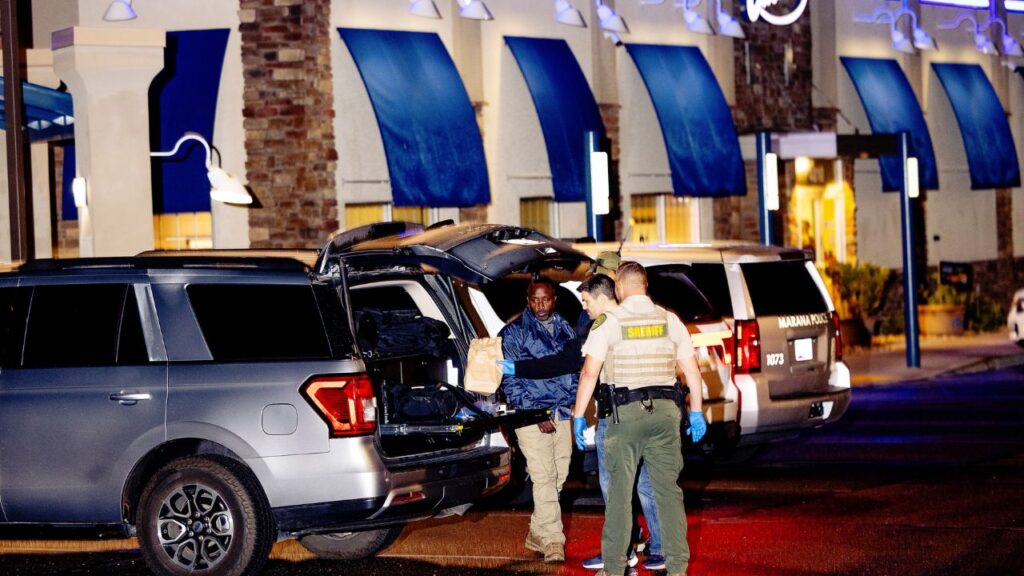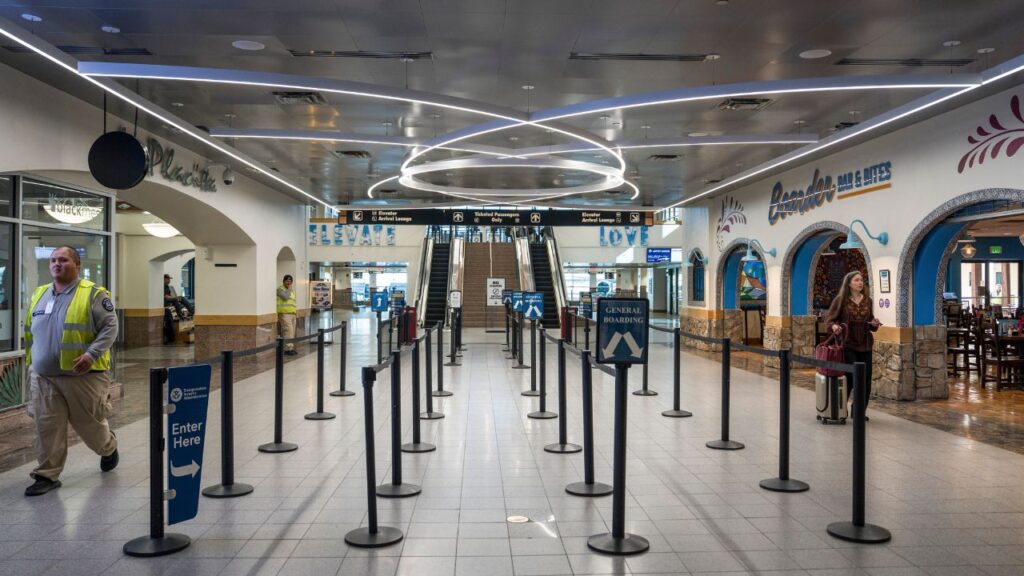The Legislative Analyst's Office says the unemployment insurance system in California is structurally broken and needs a drastic overhaul to save the state from a growing debt. (GV Wire Composite/David Rodriguez)

- The state's unemployment insurance fund is broke. Legislative Analyst's Office says without drastic changes taxpayers and employers will bear the brunt.
- The taxation method , which hasn't changed since 1982, favors employers of high-wage earners.
- Billions of dollars of unemployment fraud occurred during the pandemic, adding to the state's woes.
Share
|
Getting your Trinity Audio player ready...
|
In its December report, the Legislative Analyst’s Office called California’s unemployment insurance system structurally “broken.”
Experts say payments to workers are among the lowest in the nation, and still, the state needs to tax businesses more to cover what it can’t already afford.
Legislators created the system to be self-sufficient. But not even the state’s low 5.4% unemployment rate can cover the fund’s debts.
Beyond the widespread fraud during the pandemic, the LAO predicts a $2 billion deficit for each of the next five years, adding to the state’s $20 billion federal debt.
The problem, the LAO and other experts say, is the state’s failure to properly tax businesses with the highest earners. That creates a situation in which businesses primarily employing high-wage employees are taxed at the same rate as those with low- and mid-range earners.
The LAO is calling for a complete overhaul of the system. Otherwise, it may further fall on employers and taxpayers to make up the difference.
“This outlook is unprecedented,” the report stated. “Although the state has, in the past, failed to build robust reserves during periods of economic growth, it has never before run persistent deficits during one of these periods.”
LAO, CBP Call for Drastic Increase on Wage Rates
The first shortfall for the fund — outside of a recession — began in 2023, when payouts exceeded revenues by $1.3 billion, according to the LAO. Shortfalls in 2024 and 2025 are expected to be $1.6 billion.

The nonprofit California Budget & Policy Center in a September report found the state’s average $373 weekly payment 18th worst nationally, despite the state’s high cost of living.
“Benefits in California have not been raised in nearly two decades. With an average benefit of just $368.53 a week in 2023, UI benefits no longer provide enough money for Californians — particularly those with low incomes — to meet the rising cost of living while seeking employment,” the report read.
Both the CBPC and LAO point to California’s tax system as the culprit.
Employers pay for unemployment through payroll taxes. But the state largely treats workers the same, regardless of pay. The state only taxes the first $7,000 of a worker’s annual wages, a rate it’s held since 1982 and now is one of the lowest rates in the nation, according to the CBPC.
That means small businesses with low-wage workers pay a higher effective payroll tax rate than large corporations. That also means unemployment payouts for high-wage earners far outpace what low-wage earners are given relative to the taxable amount.
“This low fixed amount, known as the taxable wage base, not only raises inadequate revenue but raises it inequitably,” the report stated.
The LAO calls for legislators to increase that rate from $7,000 to $46,800, placing the state sixth from the highest.
What Does it Mean for Businesses?
While increasing taxable wages, the LAO recommends lowering the rate at which those wages are taxed. It also recommends taxing businesses based on employment increases and decreases.
The state can cut the tax rate from an average 3.5% to 1.9% and be able to not only fund the system but build a reserve for recessions.
Even before the pandemic, when unemployment spending skyrocketed to nearly $25 billion from just under $5 billion, the program was facing insolvency. To cover that, the state relied on federal loans to pay for workers. But the state has yet to begin paying that debt back in earnest.
California has attempted to seek loan forgiveness from Department of Labor Acting Secretary Julie Su, who previously served as the secretary of the California Labor & Workforce Development Agency, according to the U.S. House Committee on Oversight and Accountability’s September report on unemployment fraud.

Already, California employers will pay a 1.2% surcharge in 2025, about $84 per worker, put on the federal government, according to the LAO. Without significant change, the LAO doesn’t see substantial repayment beginning until even more surcharges are levied against businesses.
Higher interest payments on that debt falls on taxpayers’ shoulders. Interest comes out of California’s general fund.
By the time the state can begin paying back federal loans, that interest cost could be $1 billion a year, the LAO reported.
And this comes as legislators in recent years have tried making striking workers, undocumented workers, and independent contractors eligible for unemployment, the LAO reported.
The owner of BMW Audi Fresno, CJ Wilson, expressed frustration that business have to pay for California’s ineffective policy.
“California fiscal policy has been disastrous for the past few years,” Wilson said. “And we’re bearing the brunt.”
Pandemic Unemployment Policies Made it Ripe for Fraud
Years before the pandemic, the California State Auditor recommended more stringent security measures, according to the Republican-led Oversight Committee’s report.
The U.S. Government Accountability Office estimates as much as 15% of all benefits paid during the pandemic — or $135 billion — could have been fraudulent.
In California, while overseeing the Employment Development Department, Su adopted a “pay and chase” policy, according to the report. The policy prioritized fast payouts rather than scrutiny over applications.
The department in July then ushered in new verification methods, but fraudsters still managed to overcome security measures.
The EDD paid $10.4 billion to people without confirming their identities, the Oversight Committee reported. The LAO reported that some deficiencies probably came from unemployment recipients who didn’t respond to requests after benefits ran out.
By not cross-referencing applicants with identities of incarcerated people, the department lost $810 million.
One man suspected of organized crime fraudulently got $5.2 million in unemployment.
The EDD approved $1.2 billion in potentially fraudulent payments to dead people, multistate claimants, federal prisoners, kids, and people over 100 years old, the report stated.
An EDD representative said thieves attacked every state and the temporary federal emergency benefit program lacked the safeguards of traditional state unemployment programs. Since 2020, the department has stopped $125 billion in fraud attempts and has recovered $6 billion in stolen funds.
People Entitled to Payments Made to Wait
The Oversight Committee reports increased scrutiny of applicants made it harder for people needing money to get it. for example, Bank of America was directed to freeze 344,000 accounts, which included 73,000 accounts the bank did not identify as potentially fraudulent.
The Committee said it also has examples of “easily identifiable identity theft” victims who had to wait more than six months for EDD to stop garnishing wages and unfreeze their state tax returns.
“EDD had acknowledged that they were victims of identity theft but were slow to rectify the situation,” the report stated. “Meanwhile, the identity thieves had been able to receive benefits under their names without facing such lengthy delays.”



















